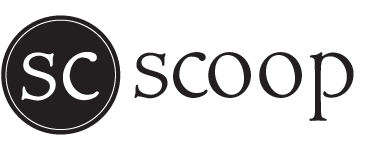The Common Application officially opened on August 1st – here’s what you and your student need to know.
Guest post contributed by Garrett Educational Consulting.
What is the Common App?

The Common Application is a digital undergraduate college admission application system that allows students to apply to over 800 universities and colleges in 49 states, the District of Columbia, Canada, Japan, China, and many European countries. Though it can seem daunting at first, pretty much every student applying to college will use this portal, and it’s easy to get started.
To begin the process, visit commonapp.org and create an account using an email address you check frequently. The application officially opens with new questions for this year’s cycle on August 1st, 2020 and consists of the following seven sections – personal profile, family, education, testing, activities, writing, and courses and grades. The writing section includes a 650-word personal statement that will be sent to all schools applied to. The Activities section is one of the most important, yet often neglected sections. It allows you to enter up to ten extracurricular activities and describe them in 150 characters or less (so it’s vital to be informative and concise).
For a more detailed walk through of the Common App’s many sections, visit commonapp.org/apply.
What’s Changed Since Last Year?
In light of the COVID-19 pandemic and other extenuating circumstances, the Common App has added the following question to their application this year:
Community disruptions such as COVID-19 and natural disasters can have deep and long-lasting impacts. If you need it, this space is yours to describe those impacts. Colleges care about the effects on your health and well-being, safety, family circumstances, future plans, and education, including access to reliable technology and quiet study spaces.
- Do you wish to share anything on this topic? Y/N
- Please use this space to describe how these events have impacted you.
This question has two purposes – First, of course, to give each and every student a chance to go into detail about their experiences in the past year and explain exactly how those experiences have impacted their education, mental health, and more. And second, to avoid having many students feel like they need to write their personal statement on the topic. The personal statement, on the other hand, should be about you – colleges want to get a feel for who you are.
This question will appear in the Additional Information section of the application and will allow for up to a 250-word response. It is entirely optional and students should not feel that they need to answer this question or that it will be to their detriment if they do not.
Forty New Schools Accepting It
There are over forty new colleges and universities allowing students to apply through the Common app this year in an effort to make the application process easier during the pandemic. This includes many larger schools in the south like Clemson, Auburn, and the University of Georgia.
Tips & Best Practices:
For a more stress-free Common App experience, check out these tips and guidelines from GEC Consulting:
Getting Started
- Use your legal name when filling out your registration information
- Make note of your Common App ID (CAID)
- Use the most up-to-date version of your web browser
- Bookmark apply.commonapp.org
- Gather materials you will need including your high school transcript, a list of your activities, work, and family responsibilities, test scores and dates from your college entrance exams, parent/legal guardian information, and any academic honors and achievements
- Download the Common App onTrack mobile app to stay organized
Filling Out the Common App
- Gather the materials you’ll need (such as your transcript and list of activities)
- Make sure you enter your high school information correctly
- Answer all required questions (marked with a red asterisk)
- Review each section of the application as you go along
Answering College-Specific Questions
- Understand each college’s requirements (such as testing policy and writing requirements)
- Select a start term and admission plan in order to set deadlines
- Keep track of deadlines
The Recommendation Process
- Complete the FERPA Release Authorization
- Double check each college’s recommendation requirements
- Ask a counselor how your school submits recommendation forms
- Talk with your recommenders before inviting and assigning them
- Make sure you enter the correct names and email addresses for your recommenders
- Communicate with your recommenders regularly
Along the Way
- Save your work
- Don’t be afraid to ask for help
- Proofread and review your information for accuracy
- Look for green check marks to indicate all required questions in a section are answered
- Carefully review your application PDF prior to submitting
Where to Go For More
- Visit the Solutions Center (appsupport.commonapp.org) or email appsupport@commonapp.net for questions regarding your application
- Check with your counselor for process-related questions
- Contact the colleges to which you are applying for college-specific questions
Garrett Educational Consulting, LLC is a full-service, academic consulting firm based in Charlotte, North Carolina. With over twenty years experience in education and counseling, Katie Garrett guides and supports students and families that are navigating important academic decisions. Services include all aspects of academic advising, comprehensive college planning, independent day school consulting, and boarding school application guidance.
